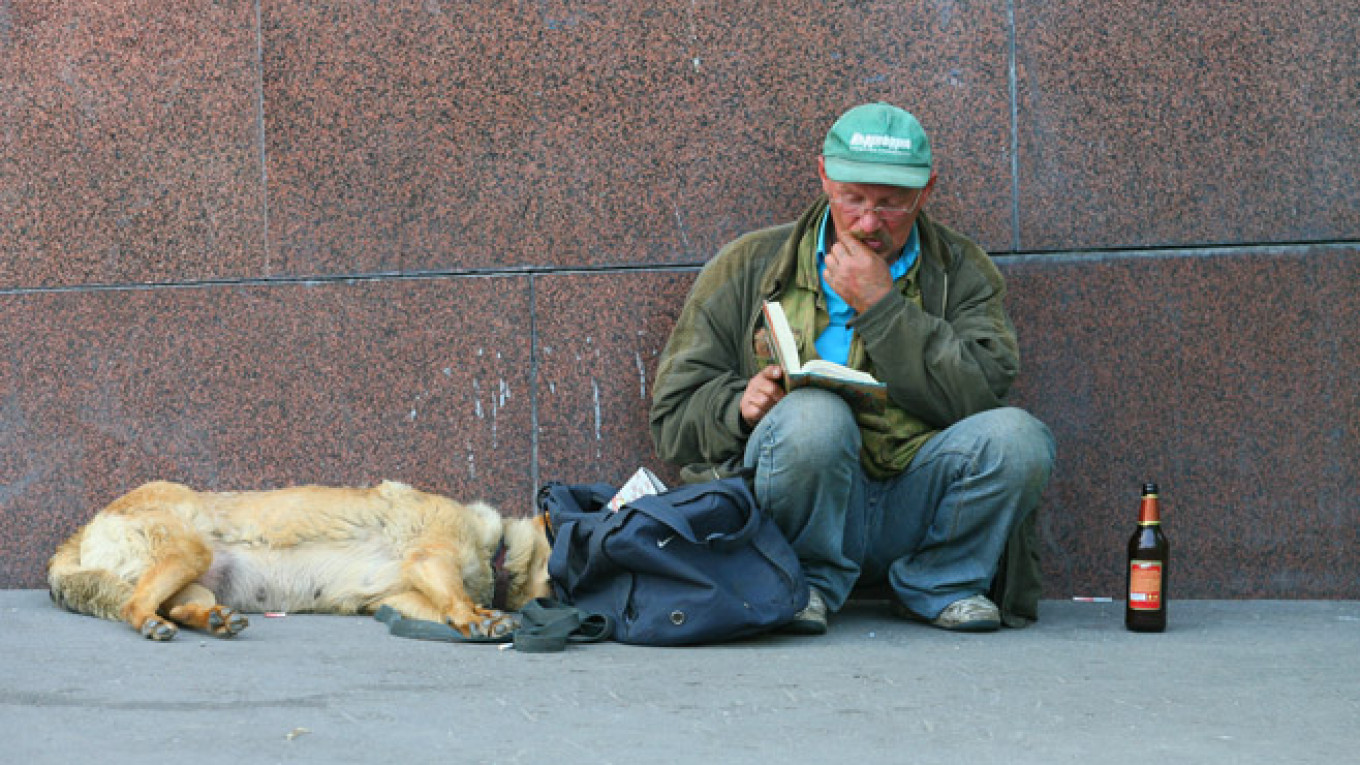People begging for money with a litter of kittens sleeping in their lap or a forlorn-looking dog lying on the ground beside them are a common sight in Russian streets and underpasses, but could soon become a thing of the past if a proposed change to the law is accepted.
The political party A Just Russia has submitted a proposal to the State Duma that would outlaw the practice of begging with animals, the Interfax news agency reported Wednesday.
"These beggars can be seen in and outside subway stations or on suburban trains: More often than not they are alcoholics and have exhausted-looking cats and dogs with them, or boxes of permanently sleeping puppies or kittens, and a sign asking people to donate money to an animal shelter, or they wear a fake shelter uniform," says the explanatory note accompanying the proposal, submitted by Duma deputy Sergei Doronin.
"Street beggars make huge sums of money every day by taking advantage of people's sympathy and providing false information about animal shelters," Doronin said in the note.
The minimum fines suggested for individuals start at 2,000 rubles ($40) and reach up to 10,000 rubles ($160) if the begging causes any harm to the animal or leads to its death.
Animal rights activists welcomed the proposal, but said it was not enough.
"Fining them is a good initiative, but I believe the animals should be taken away from them," Margarita Makarova, a volunteer for Moscow's state-run Kurkino dog shelter, told The Moscow Times on Wednesday.
"The pets are either stolen from their owners or taken from dog shelters, so these people can always find other animals if they want to. A program for taking care of the confiscated animals should also be implemented," she said.
Last month, the chair of Russia's Public Chamber submitted plans to the Moscow mayor's office to set up an animal police force in the capital, Russian media reported. The division would be responsible both for ensuring people are not at risk from stray animals, and for protecting four-legged companions from potential violence and so-called "dog hunters," who have been known to leave poison in public places that has killed both strays and family pets.
Contact the author at [email protected]
A Message from The Moscow Times:
Dear readers,
We are facing unprecedented challenges. Russia's Prosecutor General's Office has designated The Moscow Times as an "undesirable" organization, criminalizing our work and putting our staff at risk of prosecution. This follows our earlier unjust labeling as a "foreign agent."
These actions are direct attempts to silence independent journalism in Russia. The authorities claim our work "discredits the decisions of the Russian leadership." We see things differently: we strive to provide accurate, unbiased reporting on Russia.
We, the journalists of The Moscow Times, refuse to be silenced. But to continue our work, we need your help.
Your support, no matter how small, makes a world of difference. If you can, please support us monthly starting from just $2. It's quick to set up, and every contribution makes a significant impact.
By supporting The Moscow Times, you're defending open, independent journalism in the face of repression. Thank you for standing with us.
Remind me later.






